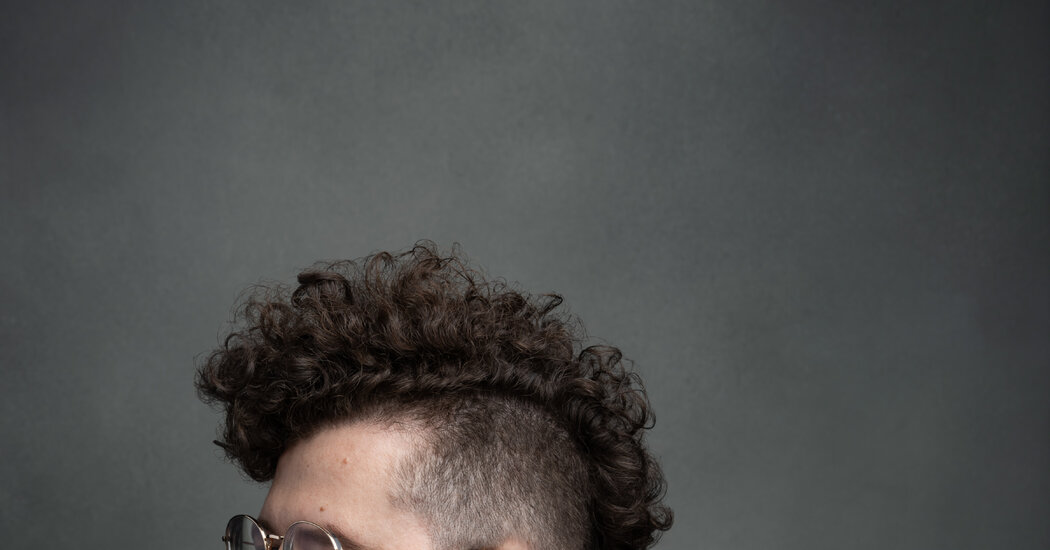AUTHORITY: Essays, by Andrea Long Chu
What a strange book “Authority,” by Andrea Long Chu, is — brilliant, blind.
The book critic for New York magazine and winner of the 2023 Pulitzer Prize for criticism, Chu has achieved a rare ascendancy in the literary world over the past several years, in equal parts for her clever, lethal takedowns of various authors and for her long essays on gender and sexuality, written from her perspective as a trans woman.
Beyond her obvious intelligence, I think there are two reasons for her success. The first is that, in the presence of an academic — Chu calls herself a scholar in “recovery” — the New York publishing class, otherwise not generally short on pride, begins to feel a little like a country mouse. Much of her style, which seems so novel in the pages of New York, is in fact close to a straight pastiche of the (transcendent) work of the Marxist critic Fredric Jameson and his descendants: flying dialectically from idea to idea without pause for explanation, and — confoundingly for a reader used to gentler handling — carrying the force of absolute conviction along with the simultaneous certainty that no conviction is valid.
The second reason is that people love a hate read. “Viciousness is the attack dog who has not eaten in three days,” Chu writes in “Authority,” her new collection of essays and criticism. “Cruelty is the person calmly holding the leash. These days I aim for cruelty.”
This may be disconcerting, but it is not ambiguous. And when you’re on the same side as Chu it is exhilarating. “Authority” gathers together three kinds of writing: reviews, personal essays and reflections on the art of criticism, most of them previously published in New York, n+1 and elsewhere. Of the three, the reviews are by far the best, the site of Chu’s magic. They contain moments of insight so accurate, and often funny, too — one of her outstanding strengths as a critic — that for me now they seem permanently etched onto those writers.
On Bret Easton Ellis whining about millennial wokeness in “White,” his polemical book of cultural commentary: “Having never grown up himself, he clings to the hope someone else will grow up in his place.”
On Hanya Yanagihara: “‘A Little Life’ is an unapologetic lifestyle novel.”
On Andrew Lloyd Webber: “His characters declaimed their emotions directly into the audience, as if by T-shirt cannon.”
On Ottessa Moshfegh: “For all its technical mastery, there remains something deeply juvenile about Moshfegh’s fiction.”
And on Zadie Smith: “The irony of Smith’s career is that she has never actually excelled at constructing the kind of sympathetic, all-too-human characters she advocates for.”
There’s a tremendous price to pay for Chu’s method. She never loves anything — never advocates for anything — and here her deeper debt to Jameson (among other scholars) becomes apparent: Over and over, she treats books as objects to be dismantled to their historical and political parts, schematized, neutralized.
Such an approach is an important current within literary criticism, and a tonic against our book culture’s reflexive humanism, which can become its own kind of kitsch. But it badly damages our faith in her taste. It isn’t even clear she has anything to offer us on those terms; the highest praise in this book is, ludicrously, for the pat, well-made postapocalyptic HBO soap opera “The Last of Us” (“a superb realization of a modest goal”).
The limitations of her broad anti-humanist position — ideas consistently reigning over affect — become clear in Chu’s writings about her experiences as a trans woman, which are sensitive and erudite, open-minded and marvelously fair, but timid, as if shadowed by the fear that a writer just like her, gifted and contemptuous, might be waiting to pounce on any straightforward or unironized fragment of thought or feeling. The few moments of emotion she permits herself — when she writes of “the scared, straight boy whose life I will never not have lived,” for example, or describes weeping in bed after her bottom surgery — are precisely when the essays intensify into the kind of moving felt reality she finds so untrustworthy in others.
Yet who can blame her — for her acidity, her caution, her anger? Her grounding premise, that much of our culture is snared in the traps of late capitalism, seems beyond dispute. Moreover, her identity as a trans woman is under assault by some of the most powerful people on Earth. Perhaps this is another explanation for her rise to fame: She is irate, in a time that deserves our ire.
Given the force of that anger, the moments when Chu briefly suspends it seem telling. In polite, uncharacteristically forgettable reviews of novels by Lexi Freiman (“keeps a wry eye on the weird billiard-ball mechanics of teenage alliance”) and Tao Lin (whose “fastidious plotlessness” exhibits the “ambivalent virtue” of “boring” verisimilitude), “Authority” abandons its professed mission. Is it a coincidence that both writers are members of the lit world’s cool crowd, as, these days, is Chu — something her book’s dense acknowledgments section, with its several dozen names shiny to anyone familiar with that particular high school cafeteria, makes evident?
Inconsistency is fatal to integrity — to authority — when you claim to be operating from principle. Then again, maybe Chu just wants to be cool! A hate read runs on hate: Beneath whatever veneer of intellectual objectivity, any book as incandescently furious as this one is ultimately a long cry of pain.
But having dedicated her career to the notion that compassion for an author should have no role in the criticism of a book, she would doubtless despise the sympathy for the author implicit in such a conclusion.
AUTHORITY: Essays | By Andrea Long Chu | Farrar, Straus & Giroux | 272 pp. | $30
